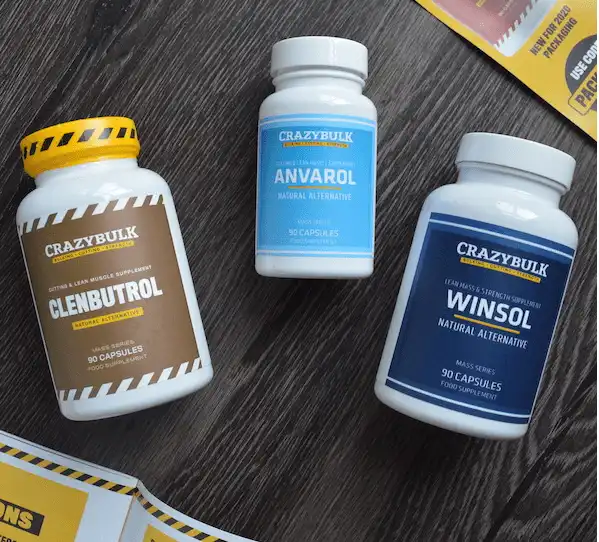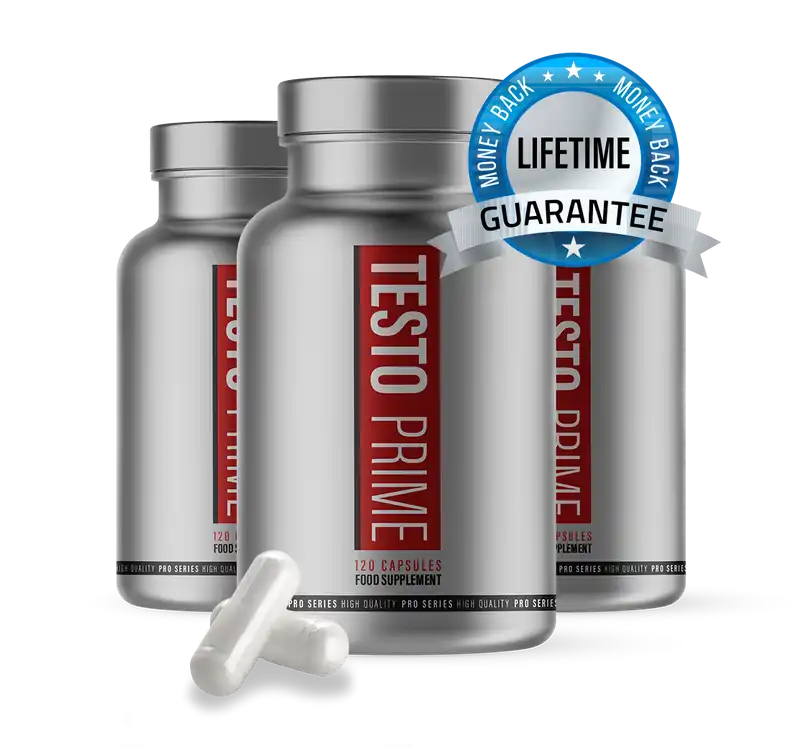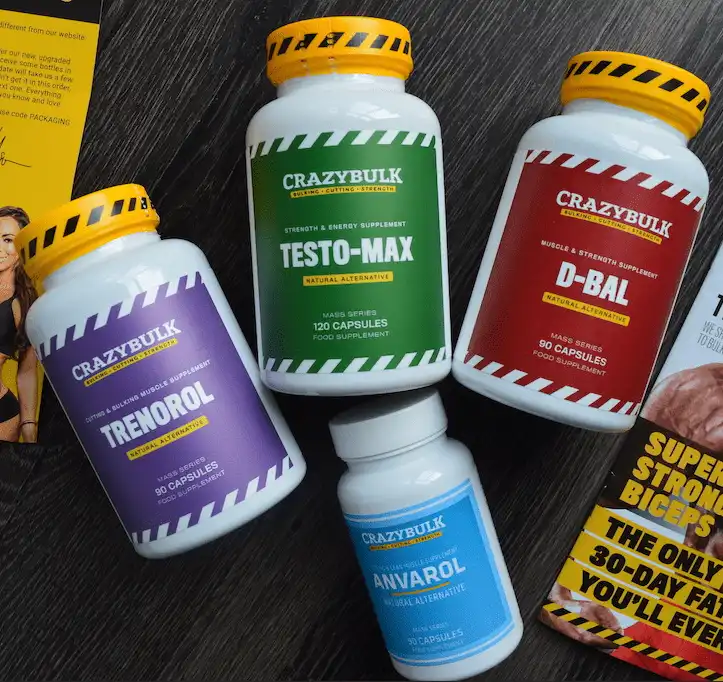Human Growth Hormone (HGH) has attracted significant attention in the bodybuilding community for its potential to enhance muscle growth, reduce body fat, and improve overall physical performance. HGH is a naturally occurring peptide hormone produced by the pituitary gland, responsible for cell production, skeletal muscle growth, and metabolism regulation. For bodybuilders and fitness enthusiasts alike, understanding the optimal dosage for HGH, as well as its possible side effects and risks, is of utmost importance.
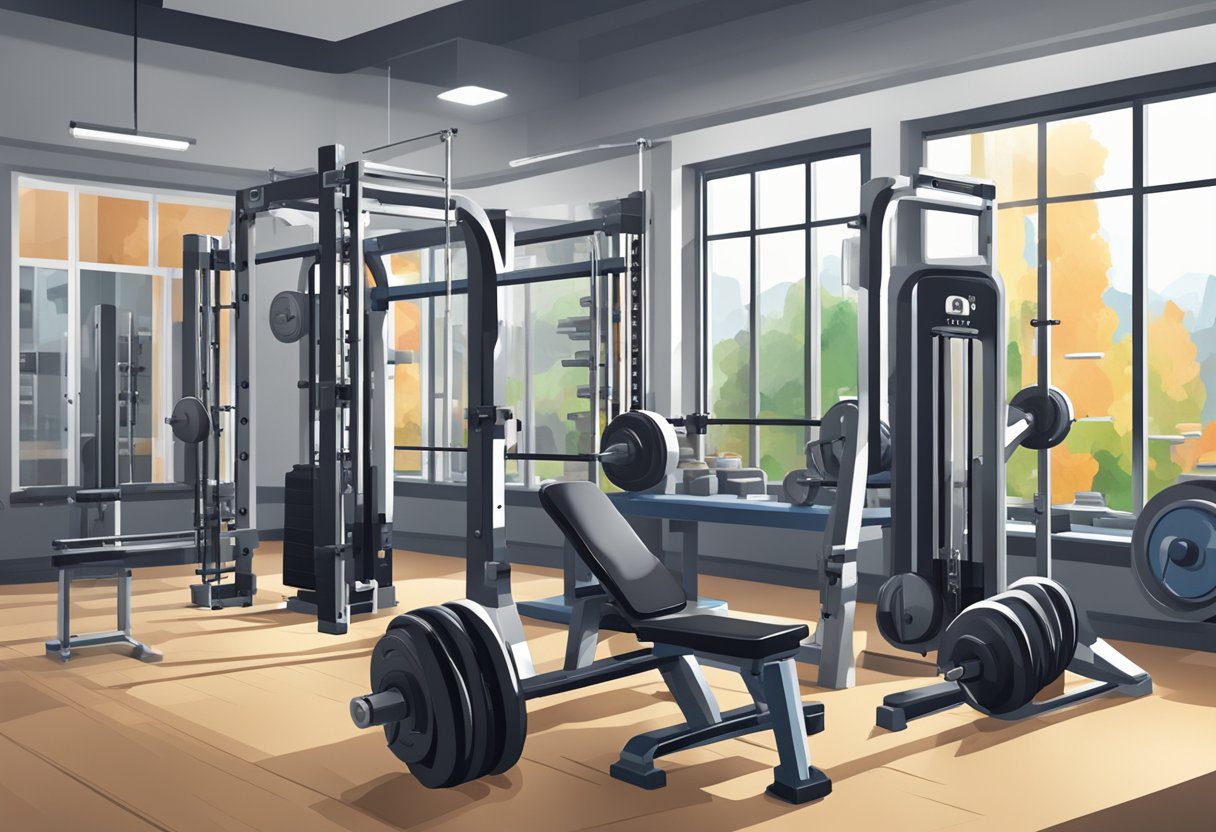
While HGH can be beneficial for bodybuilding and athletic performance, it is essential to use it in the right dosages to maximize its benefits while minimizing potential health risks. The recommended dosage for HGH varies based on the individual’s goals and overall health. Generally, people use 2 IU per day for anti-aging purposes, between 4 to 6 IU for bodybuilding, weight loss, and fitness. It is crucial to consult with a healthcare professional before starting any HGH regimen in order to determine the best approach and dosage based on your unique needs and goals.
Key Takeaways
- HGH may enhance muscle growth, reduce body fat, and improve physical performance in bodybuilding.
- Optimal dosage for HGH depends on individual goals and overall health.
- Consultation with a healthcare professional is recommended before starting any HGH regimen.
Understanding HGH
Human Growth Hormone (HGH), also known as Growth Hormone (GH), is a naturally occurring peptide hormone secreted by the pituitary gland. This hormone plays a significant role in several physiological processes, including cell regeneration, tissue growth, and metabolism regulation.
HGH is synthesized and released by the pituitary gland, one of the most critical glands located at the base of the brain. It functions as a growth hormone secretagogue, stimulating the production and release of other hormones in the body. In the context of bodybuilding, HGH is often used to enhance muscle-building efforts and improve overall body composition.
Growth hormone deficiency occurs when the body does not produce enough HGH, leading to impaired growth and development, lower energy levels, and reduced muscle mass. On the other hand, excessive HGH levels can lead to significant subcutaneous fat loss in individuals, creating serious health issues such as acromegaly and gigantism.
There are several factors to consider when using HGH for bodybuilding, including the desired effects, dosage, cycle length, and potential side effects. Below is a summary of some common HGH dosages for different purposes:
- Anti-aging: 2 IU/day
- Bodybuilding, weight loss, and fitness: 4 to 6 IU/day
- Treatment of severe burns or injury recovery: 8 to 16 IU/day (short duration only)
Proper nutrition and training are also crucial elements in maximizing HGH’s potential while minimizing risks. It is essential to consult with a healthcare professional or experienced coach before initiating an HGH bodybuilding cycle to ensure safety and optimize results.
In summary, HGH is a powerful hormone with diverse physiological functions. It has been used increasingly in bodybuilding for muscle growth and improved body composition. However, it is essential to understand the appropriate dosages, cycle length, and potential risks to optimize results and minimize potential adverse effects.
Role of HGH in Bodybuilding
Human Growth Hormone (HGH) has become a popular subject in the bodybuilding and fitness community due to its potential benefits in muscle growth, strength enhancement, and fat loss. As a naturally occurring peptide hormone, HGH plays a vital role in various aspects of physical development, including skeletal muscle growth and cell production.
Bodybuilders and athletes often turn to HGH as a means to improve their muscle mass, strength, and performance. The hormone has been shown to stimulate protein synthesis, promote muscle cell growth, and increase the size and strength of muscles. Furthermore, HGH can positively impact metabolism, encouraging the body to use fat stores for energy and aiding in subcutaneous fat loss.
The typical HGH dosage for bodybuilding purposes can vary according to individual goals and needs. Generally, people use 2 IU per day for anti-aging, 4 to 6 IU for bodybuilding and fitness, and 8 to 16 IU for short durations to treat severe burns or recover from injuries.
It’s essential for individuals interested in using HGH for bodybuilding to understand the hormone’s role and potential risks. While HGH can contribute to muscle growth, strength enhancement, and fat loss, it’s crucial to approach its use responsibly and consider its potential side effects, such as joint pain, carpal tunnel syndrome, and diabetes.
In summary, HGH can play a significant role in bodybuilding by promoting muscle growth, strength, and fat loss. However, it’s important to use it responsibly and be aware of potential risks associated with its use. Paired with a balanced diet, regular exercise, and proper rest, HGH can help individuals reach their bodybuilding and fitness goals.
Recommended Dosage For Bodybuilding
When considering HGH (Human Growth Hormone) dosages for bodybuilding purposes, the specific dosage depends on the individual’s goals and experience level. It is important to remember that HGH should be used under the guidance of a healthcare professional and never be used without a prescription.
For beginners, a lower dosage is recommended to gauge the body’s response to HGH and minimize the potential risks. A typical beginner’s dosage is around 2 to 4 IU per day. This dosage is often split into multiple injections throughout the day to maintain a steady level of the hormone in the body.
For advanced bodybuilders or those with more experience using HGH, higher dosages might be applied. It is common to see dosages ranging from 4 to 6 IU per day. This increased dosage accommodates the need for enhanced muscle-building efforts and improved overall body composition. Just like beginner dosages, it’s good practice to split the daily dosage into multiple injections.
It is essential to note that HGH cycles play a critical role in maximizing its benefits. Most HGH cycles for bodybuilding last between 8 to 12 weeks. This duration is determined by individual goals and tolerability.
In summary, the recommended HGH dosage for bodybuilding depends on the individual’s level of experience and goals. Beginners should start with a lower dosage of 2 to 4 IU per day, while more advanced users may opt for a higher dosage of 4 to 6 IU per day. Always consult with a medical professional and follow a proper HGH cycle for the best results.
Side Effects and Risks

Common Side Effects
When using HGH for bodybuilding, it is important to be aware of the possible side effects. Some of the common side effects include water retention, which can lead to a bloated appearance, and carpal tunnel syndrome due to swelling of the tissues in the wrists. These side effects are often experienced at higher dosages, above 4IU per day. Additionally, the use of HGH might cause changes in skin and hair, as well as increased energy levels.
Long-Term Risks
Long-term use of HGH can result in more severe health risks. These include acromegaly, a condition characterized by abnormal growth of the hands, feet, and facial features, as well as insulin resistance which can lead to diabetes. Furthermore, there is a risk of liver damage, elevated blood pressure, and an increased likelihood of developing tumors or cancers.
Steroid Usage and Doping
In the context of bodybuilding, combining HGH with anabolic steroids is not uncommon. However, this practice can lead to additional health risks, as anabolic steroids have their own side effects and long-term consequences. Moreover, from an ethical standpoint, HGH and steroid usage in competitive sports is considered doping. The World Anti-Doping Agency (WADA) has strict regulations in place to ensure fair play, and those found guilty of doping violations may face severe penalties.
Age and Gender Related Risks
HGH use for bodybuilding purposes should be approached with caution, as age and gender play a significant role in determining the risks involved. For instance, it is known that the body’s natural production of HGH decreases with age, and this can impact the efficacy and safety of HGH supplementation. Older individuals might be more susceptible to health-related issues when using HGH. Moreover, there might be differences in the effects of HGH between men and women, although further research is needed to fully understand these distinctions.
In conclusion, it is crucial for individuals considering HGH for bodybuilding to weigh the potential benefits against the risks involved. Consulting with a healthcare professional or a knowledgeable expert in the field can provide valuable insight and guidance for those interested in incorporating HGH into their fitness regimen.
Understanding the IGF-1 Insulin Relationship
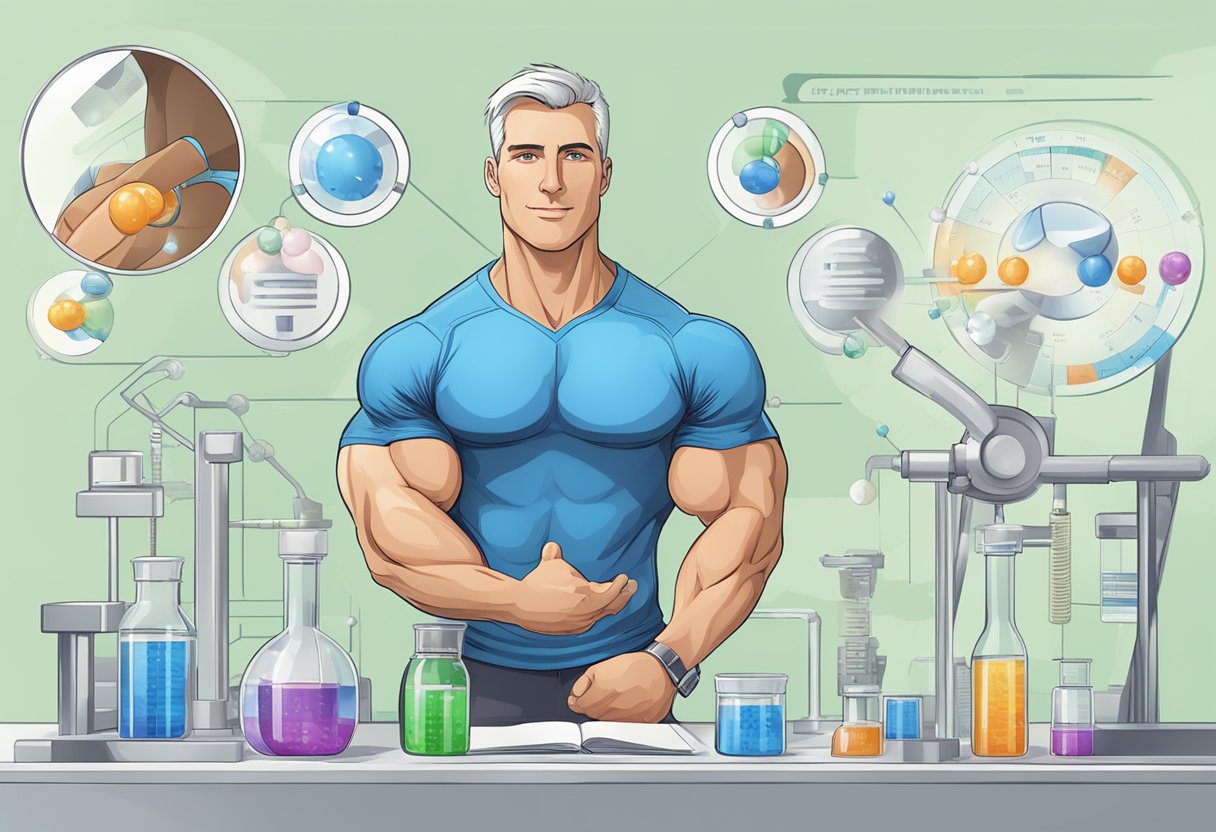
Insulin-like Growth Factor 1 (IGF-1) is a peptide hormone that plays a pivotal role in muscle development. It is closely linked to Human Growth Hormone (HGH) and is often used in conjunction with it for bodybuilding purposes. IGF-1 has an almost 50% amino acid sequence homology with insulin, and it can elicit nearly the same hypoglycemic response.
The relationship between IGF-1 and insulin is important to understand, as both hormones are involved in the regulation of glucose metabolism. Both low and high IGF-1 levels have been associated with impaired glucose tolerance and an increased risk of type 2 diabetes1. This has led to interest in the possible effects of IGF-1 on insulin resistance and how it might impact bodybuilders.
There is evidence to suggest that increasing IGF-1 levels can have a favorable effect on waist circumference and insulin resistance2. Adjusting IGF-1 levels to the high-normal range has been suggested to have positive effects on body composition, macrovascular hemodynamics, vascular stiffness, and insulin resistance2. Thus, it could be beneficial for bodybuilders to monitor and optimize their IGF-1 levels in order to support their goals.
When it comes to the dosages of IGF-1 used by bodybuilders, they typically range from 40 to 100 mcg per day, divided into multiple injections3. It is important to note that the use of anabolic hormones like IGF-1 and insulin carries potential risks and should be approached with caution. As performance-enhancing drugs (PEDs), their use is commonly abused among professional and recreational athletes to enhance physical ability and improve body aesthetics4. It is always recommended to consult with a medical professional before considering the use of such substances.
In summary, the IGF-1 and insulin relationship is a crucial aspect to consider for bodybuilders aiming to optimize their performance and physique. Monitoring and adjusting IGF-1 levels can potentially lead to improved body composition and reduced insulin resistance. However, the use of IGF-1 and other anabolic hormones should be done with caution and under the supervision of a medical professional due to associated risks and potential side effects.
HGH Supplements Vs. Injections
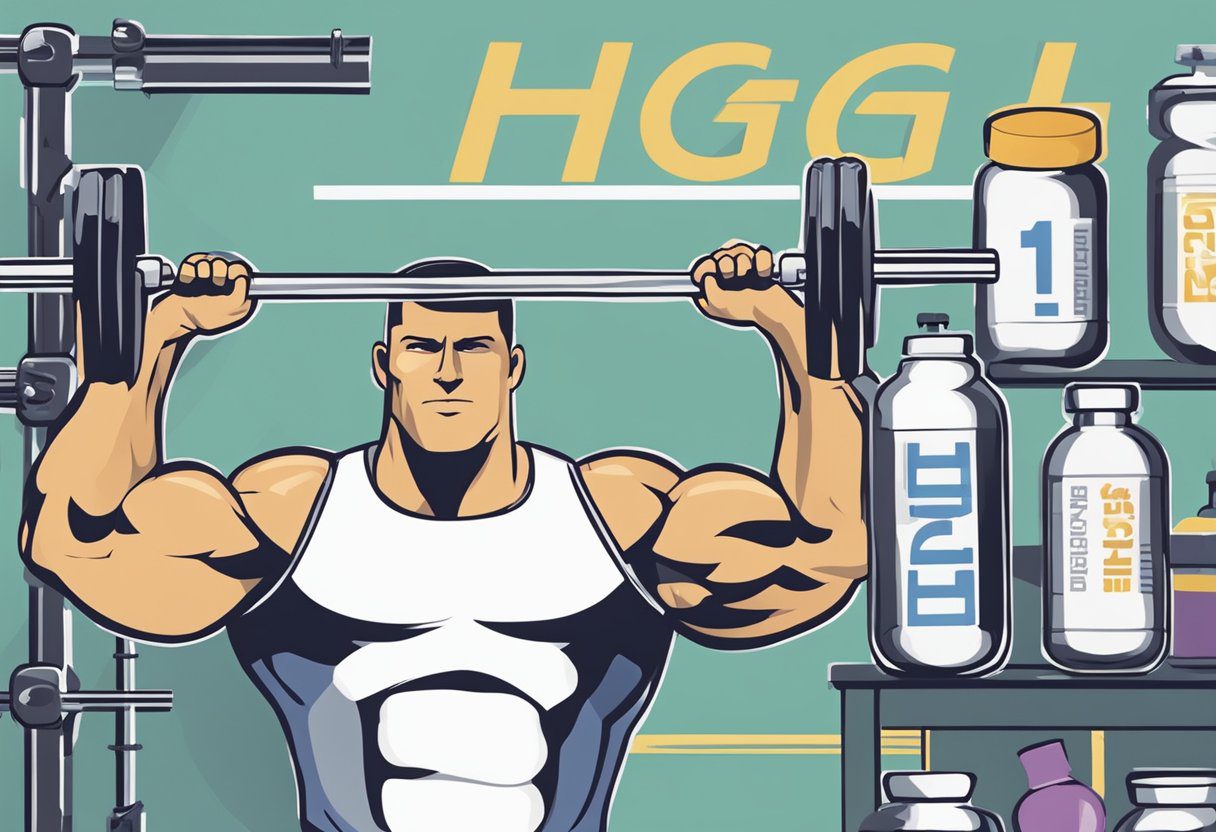
When it comes to choosing the best HGH dosage for bodybuilding, one of the key decisions is whether to opt for supplements or injections. Both options have their pros and cons, but ultimately, the right choice will depend on personal preferences, budget, and specific bodybuilding goals.
HGH Injections
HGH injections typically use synthetic growth hormones, such as Somatropin or Somatrem. These are injections that contain the purest form of HGH, making them highly effective for bodybuilders looking to build muscle, improve recovery, and reduce body fat. However, injections can be costly, and they require a prescription as they are regulated by the FDA.
Some advantages of HGH injections include:
- Increased muscle mass and strength
- Improved recovery times
- Reduction in body fat
- Enhanced bone density
HGH Supplements
On the other hand, HGH supplements, such as HGH-X2 and MK-677, offer a more accessible and affordable option for those looking to enhance their bodybuilding efforts. These are typically over-the-counter products that contain natural ingredients to stimulate the body’s own production of human growth hormone.
Benefits of HGH supplements may include:
- Boosted HGH levels
- Improved workout performance
- Faster recovery times
- Support in weight loss and muscle growth
It’s important to note that results obtained from HGH supplements may not be as profound as those from injections. Being less potent, they may take longer to show noticeable effects. Moreover, quality and ingredients can vary among supplement brands, so it’s essential to choose a reputable product.
In summary, both HGH injections and supplements can play a role in enhancing bodybuilding results. Injections are more powerful and faster-acting, but they come with higher costs and certain legal restrictions. HGH supplements, on the other hand, offer a more cost-effective and accessible alternative. Ultimately, bodybuilders need to weigh the pros and cons of each method in the context of their specific goals and individual circumstances.
Body Composition and Fat Loss
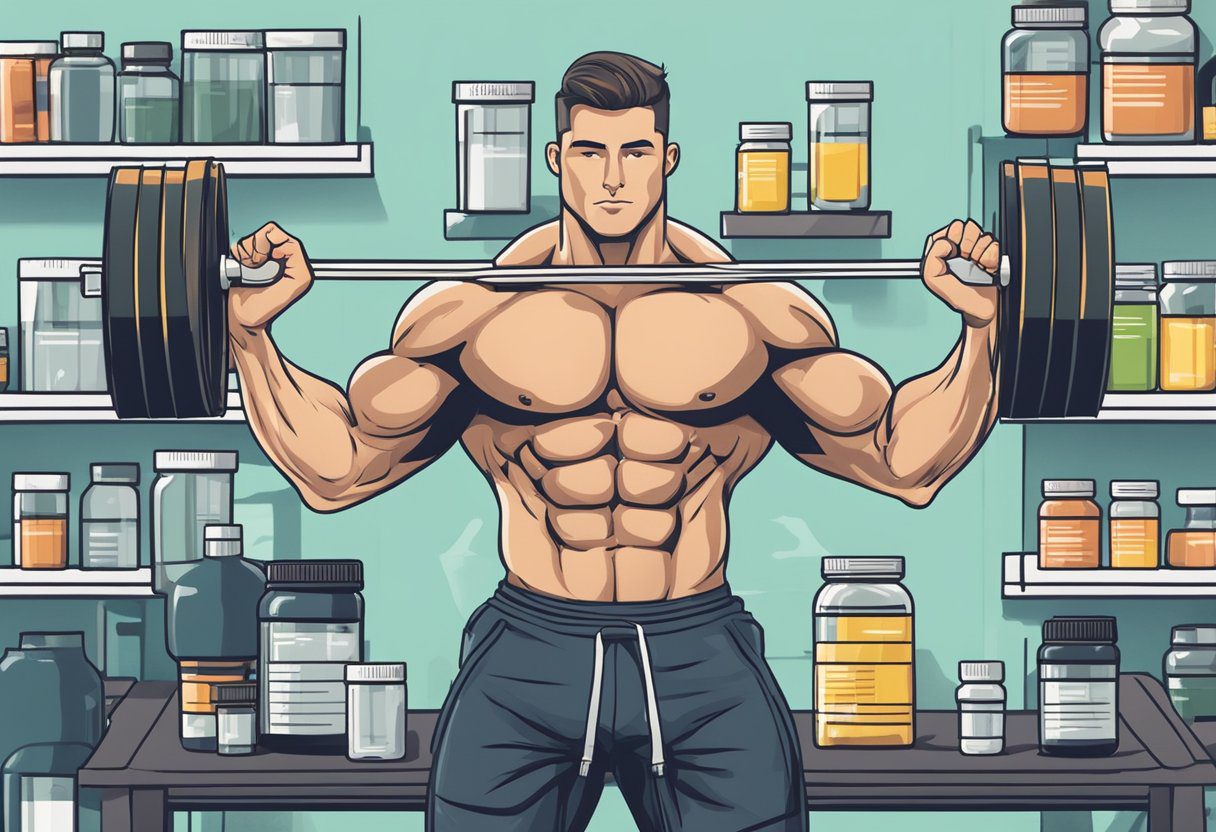
Human Growth Hormone (HGH) holds a significant position in the world of bodybuilding and fitness due to its implications on body composition, particularly in terms of promoting fat loss and contributing to the development of lean muscle mass. HGH is a naturally occurring peptide hormone, which plays a crucial role in skeletal muscle growth and cell production.
When it comes to fat loss, HGH affects the metabolism and adipose tissue, which is responsible for the body’s storage of fat. In individuals with higher levels of HGH, a noticeable reduction in subcutaneous fat can be observed. This occurs as the hormone stimulates lipolysis, the process of breaking down triglycerides stored in fat cells, leading to a decrease in overall body fat percentage.
In addition to fat loss, HGH has been shown to encourage gains in lean muscle mass. This is due to the hormone’s ability to stimulate the production and differentiation of satellite cells, which contribute to muscle fiber growth. As a result, people supplementing with HGH can experience improvements in their body composition as they gain muscle and lose fat simultaneously.
It is important to note that appropriate HGH dosage plays a key role in achieving these desired effects on body composition. A typical dosage for bodybuilding and fitness purposes falls in the range of 4 to 6 IU per day. However, individual factors such as age, weight, and fitness goals should be considered when determining the optimal HGH dosage.
To summarize, HGH has the potential to positively impact body composition by promoting both fat loss and enhancing lean muscle mass. When used with proper dosages, individuals supplementing with HGH may experience improvements in adipose tissue reduction and muscle growth, leading to a leaner and more sculpted physique.
Influence on Quality of Life
Human growth hormone (HGH) plays a significant role in determining the quality of life of individuals who engage in bodybuilding. Beyond the muscle-building aspect, HGH also impacts various factors in daily life like sleep, concentration, energy levels, and overall well-being.
Sleep is a crucial component of a bodybuilder’s routine, as it promotes recovery and muscle growth. HGH helps improve sleep quality by regulating the sleep-wake cycle and promoting deep sleep. This, in turn, contributes positively to the individual’s quality of life and overall health.
Another aspect influenced by HGH is concentration. HGH has been linked to enhanced cognitive function and improved focus. This benefit is particularly useful for bodybuilders, who need to maintain a level of attentiveness during their training sessions and day-to-day tasks.
Energy levels are vital for individuals engaging in bodybuilding, as maintaining a consistent workout regimen requires a steady source of energy. HGH has been found to increase energy levels and reduce fatigue, both of which contribute to a more active and fulfilling lifestyle.
HGH also has a positive impact on fatigue management. It helps the body utilize energy more efficiently and recover faster post-workout. This improvement in fatigue management enables bodybuilders to maintain a rigorous training schedule without feeling excessively drained or lethargic.
The combined effects of HGH on sleep, concentration, energy, and fatigue management significantly contribute to the overall quality of life for those involved in bodybuilding. By optimizing these elements, individuals can experience a more balanced and satisfying lifestyle.
It is essential to note that maintaining an appropriate HGH dosage, as mentioned in various sources, will help in optimizing these benefits while minimizing potential risks and side effects. Therefore, individuals who use HGH for bodybuilding should approach it with caution and always consult with a medical professional prior to incorporating HGH into their fitness regimen.
Improving Recovery and Healing
Human growth hormone (HGH) can contribute to enhancing recovery and healing processes, which is a vital aspect of bodybuilding and fitness regimens. The benefits are not limited to just muscle growth and fat loss, it also plays a crucial role in supporting tissue repair and reducing joint pain.
Recovery and healing are essential components of any fitness program, as they enable individuals to train consistently and reach their bodybuilding goals. HGH influences the body’s healing process by stimulating cell regeneration and tissue repair. It boosts protein synthesis, which helps to repair damaged muscle fibers and develop new ones, resulting in improved recovery times.
In the context of injuries, HGH can be particularly beneficial for athletes aiming to recover faster from acute or chronic injuries. It accelerates the healing of tissues, including bones and tendons, by increasing the production of collagen – a crucial building block in connective tissues.
One key benefit of HGH supplementation for bodybuilders is its effect in reducing joint pain. Increased collagen production can lead to healthier joints, cartilage, and ligaments, alleviating discomfort and enabling individuals to maintain their training intensity. Furthermore, HGH promotes synovial fluid production, essential for lubricating joints and preventing stiffness.
In summary, HGH can be an invaluable aid for bodybuilders and fitness enthusiasts in enhancing their recovery and healing process. Its ability to support tissue repair, alleviate injuries, and reduce joint pain can have a significant impact on their training and overall progress. To maximize these benefits, it is crucial for individuals to follow the appropriate dosages and consult with a healthcare professional before beginning an HGH supplementation routine.
Bone Density and Strength
Human Growth Hormone (HGH) has been shown to promote bone density and overall strength, making it a topic of interest for bodybuilders and athletes. Maintaining bone health is crucial for athletes to prevent injuries and ensure optimal performance.
HGH acts directly on the bone by stimulating the production of osteoblasts, the cells responsible for bone formation. Also, it has a positive effect on chondrocytes, which promote the growth of cartilage. These factors together contribute to improved bone density and reduced risk of fractures.
It is important to note that bone density does not solely rely on HGH but also other factors such as diet, exercise, and calcium intake. Therefore, it is crucial to maintain a balanced diet and engage in regular weight-bearing exercises to support bone health.
The optimal HGH dosage for bone density improvement in bodybuilding remains to be a topic of debate. As mentioned in the search results, general HGH usage varies for different purposes:
- 2 IU per day for anti-aging purposes
- 4 to 6 IU per day for bodybuilding, weight loss, and fitness
However, it is crucial to consult with a medical professional before initiating any HGH therapy, as inappropriate dosages or prolonged use may lead to adverse effects.
In conclusion, HGH plays a significant role in promoting bone density and strength, which can benefit bodybuilders and athletes. When appropriately administered, HGH may help prevent injuries and promote overall performance. Always consult with a healthcare professional to determine the best course of action and dosage tailored to individual needs.
The Role of Diet and Exercise
In the world of bodybuilding, the importance of diet and exercise cannot be overstated. Both factors play a significant role in determining how effectively HGH supplementation can promote muscle growth, fat loss, and overall performance.
Exercise is fundamental to stimulating protein synthesis and the release of amino acids. This is important because human growth hormone (HGH) works synergistically with insulin-like growth factor-1 (IGF-1) to stimulate muscle growth. Engaging in consistent, intense workouts helps to increase the body’s demand for amino acids, thus maximizing the effectiveness of HGH supplementation.
Additionally, exercise helps increase metabolism rates, which in turn, helps enhance the positive effects of HGH on fat loss. High-intensity workouts, such as weightlifting or interval training, can enhance lipase activity in adipocytes. Lipase is an enzyme that breaks down fats, allowing the body to effectively utilize stored body fat for energy.
A well-rounded diet is essential for optimal HGH results. Consuming adequate amounts of protein, carbohydrates, and healthy fats is crucial to fuel your workouts and support muscle growth. A diet rich in amino acids assists in protein synthesis, which is vital for muscle development and repair. Complex carbohydrates provide sustained energy, while healthy fats help regulate hormone production.
In conclusion, incorporating regular exercise routines and a balanced diet alongside HGH supplementation can maximize its potential benefits in bodybuilding. By creating an environment that supports muscle growth and metabolic efficiency, individuals can effectively pursue their desired bodybuilding goals.
Frequently Asked Questions
What are common HGH dosages for beginners?
Beginners typically start with a low HGH dosage, often between 2 to 4 IU per day for bodybuilding, weight loss, and fitness purposes. It is important to adjust the dosage gradually based on individual goals, tolerance, and body response.
How long should an HGH cycle last for optimal results?
The duration of an HGH cycle can vary depending on the individual’s goals and bodily response to the hormone. For bodybuilding, cycles usually last between 3 to 6 months, allowing ample time for the hormone to promote muscle growth, fat loss, and other positive effects.
Are there different HGH types for bodybuilding?
There may be various brands and types of HGH available on the market, with slight differences in their composition and effects. However, the primary active ingredient, somatropin, remains consistent across HGH types. The effectiveness of HGH for bodybuilding mainly depends on factors such as dosage, duration, and individual response.
What are the potential side effects of HGH in bodybuilding?
The use of HGH in bodybuilding can potentially lead to side effects, such as joint pain, fluid retention, insulin resistance, and heightened risk of diabetes. Long-term HGH use may also cause enlargement of internal organs, contributing to an abnormal appearance. It is important to carefully monitor HGH usage and consult with a medical professional to minimize these risks.
How does HGH use affect muscle growth and fat loss?
HGH can promote muscle growth and fat loss by stimulating protein synthesis, encouraging cell growth, and boosting lipolysis (the breakdown of fat). This helps bodybuilders improve their overall muscle mass, reduce body fat percentage, and enhance muscle definition.
Can HGH dosage be tailored for individual bodyweight?
HGH dosage can be adjusted according to individual factors, such as bodyweight, goals, and tolerance. However, it is essential to consult with a medical professional before making any adjustments to an HGH dosage plan, as improper dosing can lead to unwanted side effects or diminished results.





